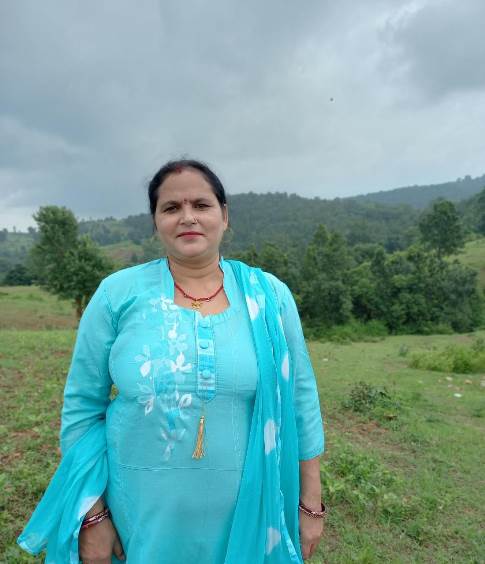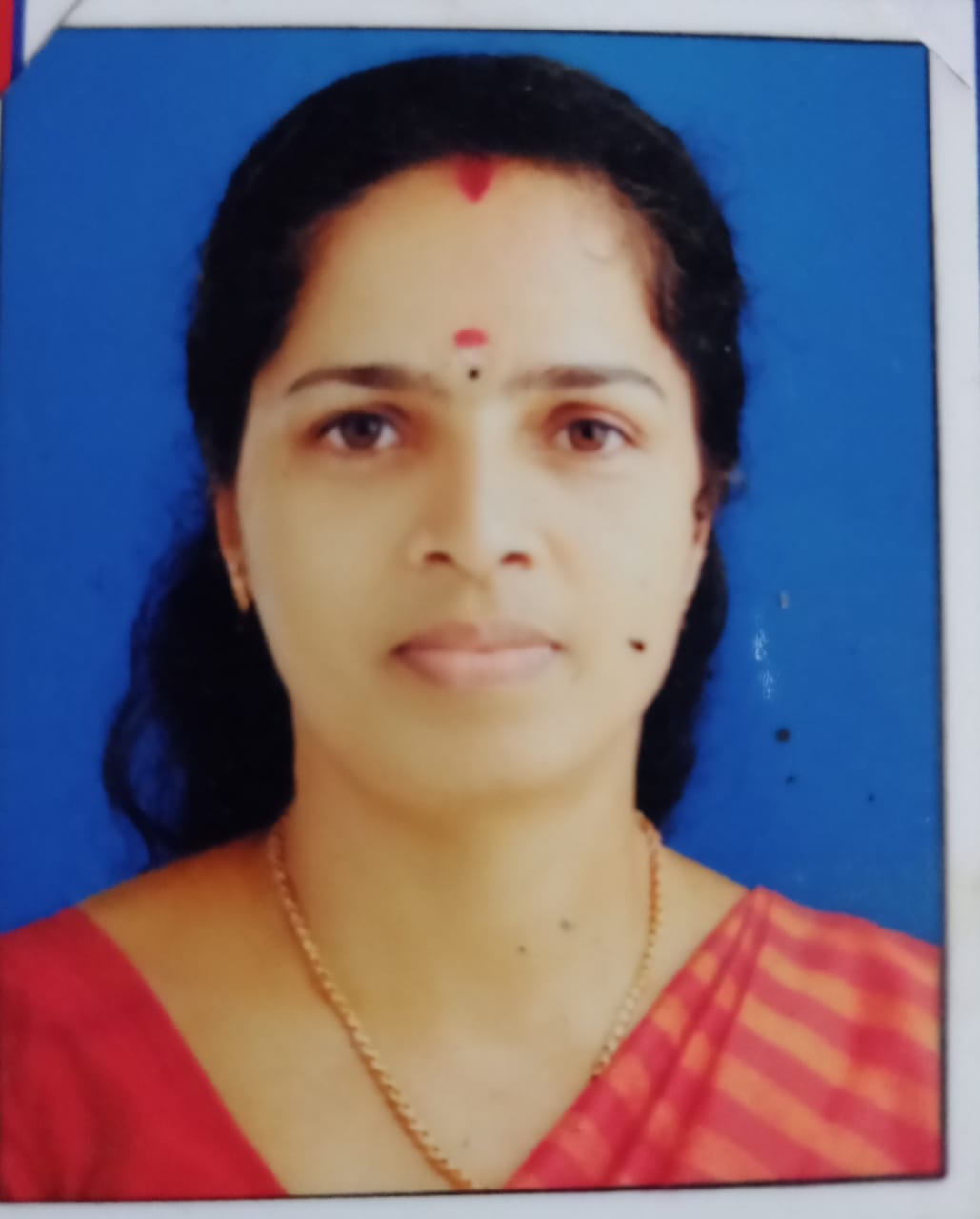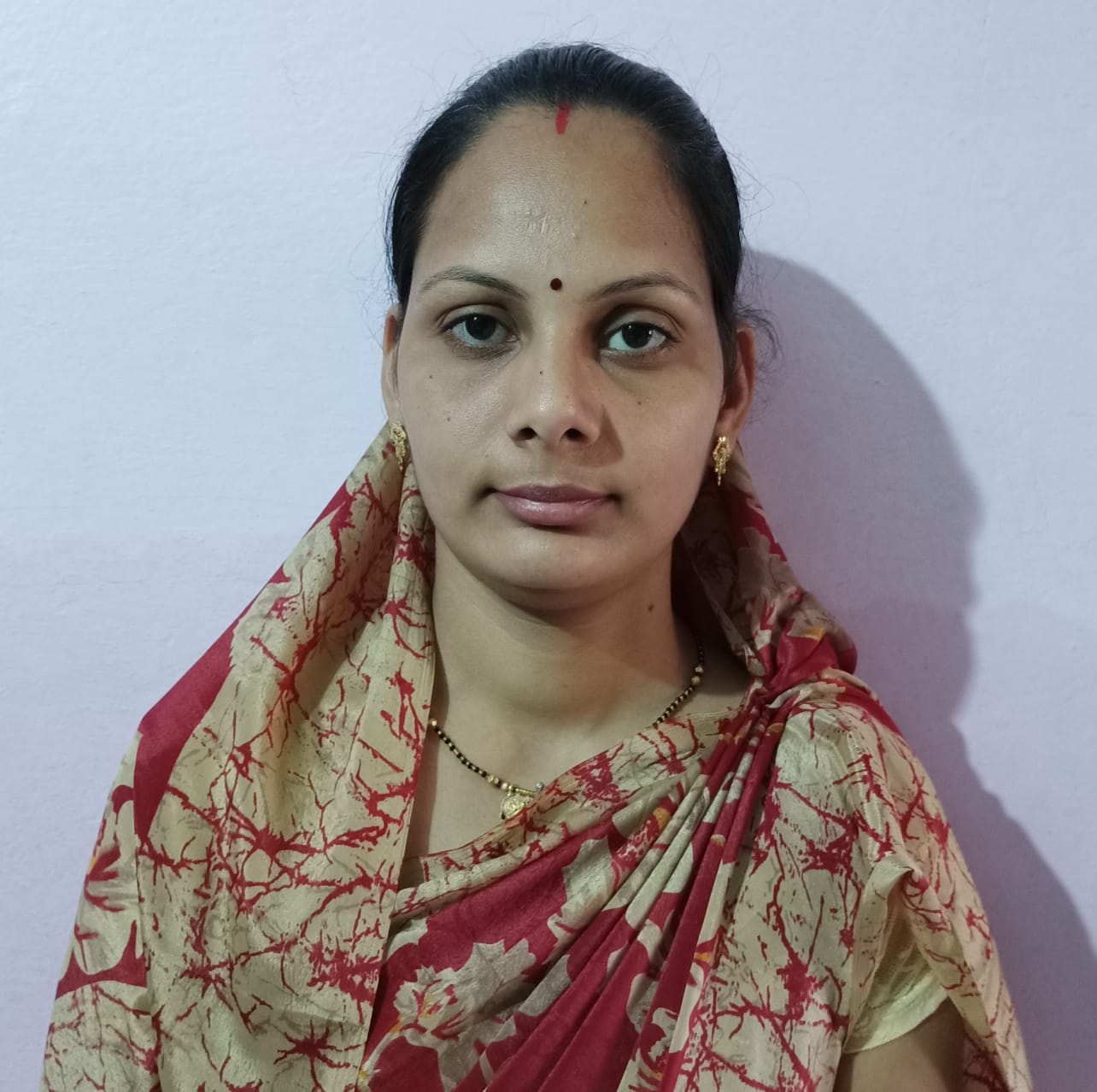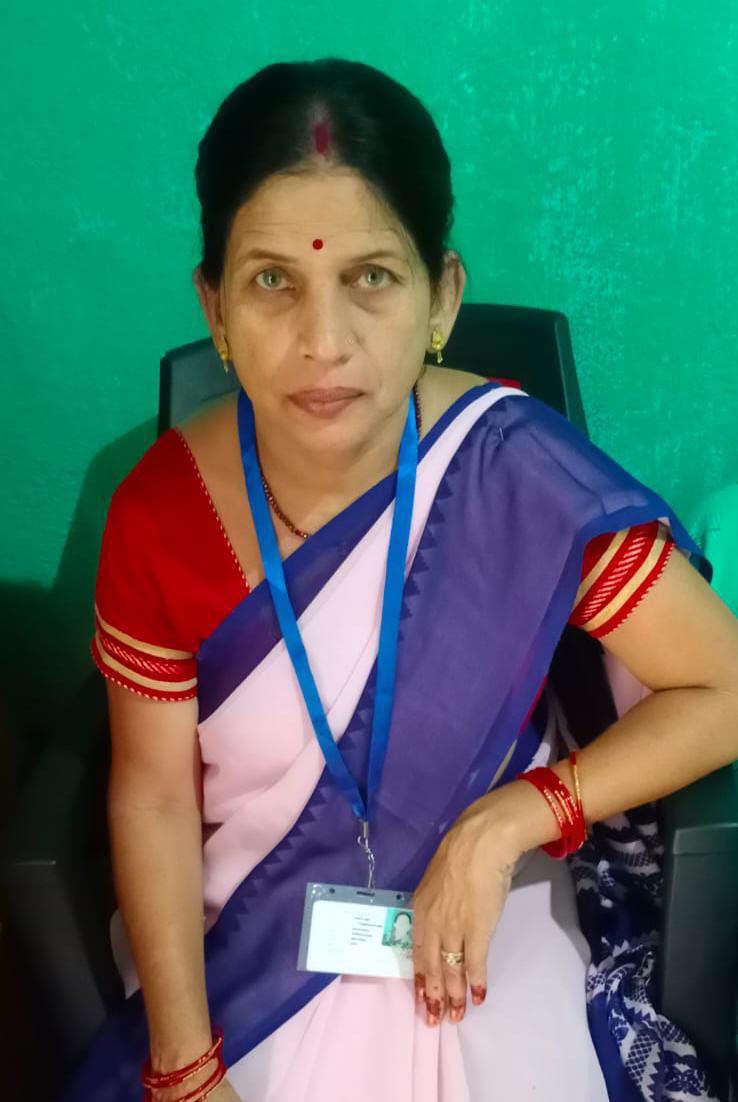Highlights
- Anganwadi workers delivered ration to pregnant & lactating women and kids
- ASHAs assisted in door-to-door COVID-19 survey
- ASHAs and ANMs are also involved in COVID vaccination
New Delhi: “Namastey, Ma’am! Me Relu ka Mister bol raha hu. (Greetings, this is Relu’s husband speaking)”. “Is Relu around?”, I enquire as I make a request to speak to her. 28-year-old Relu Vasave, an Anganwadi worker lives in the remote tribal area of the Nandurbar district of Maharashtra. Her job involves monitoring the health of pregnant women, lactating mothers and children up to six years of age; providing medicines and nutritional supplements, as per the schedule and government protocol. To reach Anganwadi centre and perform her job every day, Relu rows 14kms to cross the river Narmada.
When NDTV reached out to Relu, she was out on work and her husband Ramesh informed,
My wife has gone away for a week for a camp at her Anganwadi Centre. You can take down her personal mobile number but there is hardly any network on the other side of the river.
Since 2016, Relu has been rowing a boat every day for 7km each way that takes her two hours, to reach out to the villagers. During the COVID-19 pandemic, her work doubled up as Anganwadi centers were shut and Relu had to go door-to-door to provide take home ration (THR), antenatal check-ups, and to educate villagers about COVID appropriate behaviour.

The inspiring story of Relu Vasve from Maharashtra, who rows a boat for 14 km daily in bid to provide healthcare support to expecting mothers and newborns during the COVID-19 pandemic
Relu is one of the lakhs of women community health workers – the Anganwadi workers (AWW), Accredited Social Health Activists popularly known as ASHAs and Auxiliary Nurse Midwife (ANM) – who have been working on the frontlines providing basic healthcare including essential immunisation and nutrition to the country’s vast rural population. While a lot of services were shut during the COVID-19 pandemic, these frontline warriors continued with their work and also supported in the fight against the Novel Coronavirus.
NDTV spoke to some of these women community health workers from different parts of the country to understand their work, how they provided their service even during the lockdown, the challenges faced by them and their role in the nation’s battle against the COVID-19 pandemic.
ANMs, ASHA And Anganwadi Workers Continue To Work ON The Ground During COVID-19 Pandemic
48-year-old Sangeetha Kamble from Mankhurd, a suburb in eastern Mumbai, Maharashtra says, as an Anganwadi worker, their first job is to stop child and maternal mortality. Giving a gist of her work, Ms Kamble, who joined as an Anganwadi worker in 2006 said,
We look after pregnant women, lactating mothers and children till 6 years of age. Women work all the time and often ignore their health, so it’s our job to educate them on how to take care of their own health, what to eat, when to eat, how much to eat, among other things. We work in alignment with the government hospitals and primary health centers (PHCs) ensuring smooth delivery, immunisation and that mother and her child gets all the benefits they are entitled to like under Pradhan Mantri Matru Vandana Yojana (PMMVY), a maternity benefit programme, Rs. 5,000 is given to pregnant women and lactating mothers for the birth of the first living child.
Also Read: The Unsung Heroes Of India’s Primary Healthcare The Anganwadi Workers And ASHAs
Due to the COVID-19 pandemic, Anganwadi centers across the country were shut as a result of which teaching young children (aged 3 to 6) at the center and providing hot cooked meals came to a halt. But, apart from that, all services continued, said Ms Kamble who was on the frontlines regularly. Further talking about her work during the pandemic, Ms Kamble said,
Once in two months, the government sends dry ration which we deliver to pregnant women and children and provide a report of the same to the government. To continue with our awareness and education programmes, initially, we created multiple WhatsApp groups of pregnant women, children (0-3-years of age and 3-6-year-olds) and lactating mothers and on WhatsApp, we used to share informational videos. But the challenge here is, not every woman has a personal mobile phone. Most of them use their husband’s numbers who are out for work all day. Therefore, our effort of teaching through WhatsApp didn’t reap good results.
To overcome the challenge of technology, Ms Kamble went door-to-door to support pregnant women and new mothers and conduct COVID surveys – keeping a record of who entered the village recently, whether he/she is in quarantine or not and checking people for symptoms.
Working on the ground and closely with people came with a risk of contracting the highly infectious COVID-19 disease but Ms Kamble said, she had prepared herself mentally. Also, to protect her family, she asked them to move to their paternal village for a few months.
Ms Kamble believes that as a frontline worker she didn’t face as much hardship as women who had to run from pillar to post for their delivery during the COVID-19 outbreak. Recalling an incident, she said,
The majority of the government hospitals were catering to COVID-19 patients because of which people were scared of going to government hospitals. I remember, a woman didn’t even have Rs. 50 to hire an auto-rickshaw to ferry her to the hospital. To top that, all small and local hospitals were shut. Together, we all chipped in money and helped her. There was another woman who had a normal delivery, but the family didn’t have enough money to put food on the table as due to the lockdown, people from the community had lost their jobs.
Similar to Ms Kamble, 45-year-old Anita Tiwari from Surguja district of Chhattisgarh, who has been working as an Anganwadi worker since 2006, took Anganwadi services to the doorstep of people. Sharing her experience of working during the pandemic, Ms Tiwari said,
When women come to the center, we provide hot cooked meals, educate them on how to feed a baby, for how long exclusive breastfeeding should be practised, dos and don’ts of breastfeeding, children are taught to read and write. However, due to the lockdown, all of these activities stopped. But, since we wanted to ensure the well-being of new mothers, we went door-to-door to provide monthly ration which includes rice, pulses, soybean, oil, and flour. This was to cover the hot cooked meals. Along with this, ready-to-eat or easy-to-cook food packets like peanuts, daliya (cracked wheat), among others were provided. The challenge here was to carry ration on our shoulders and also, there was a risk of getting the infection.
Ms Tiwari informed that during home visits, she and fellow Anganwadi workers used to take stock of women’s and children’s health and educate them about hygiene practices and nutrition. To ensure routine immunisation of children, the Anganwadi centre was opened once after full sanitisation and children were vaccinated in batches.
I was not scared of working on the frontlines as this is my duty. We would take all precautions, wear gloves, double mask and maintain physical distance, said Ms Tiwari.
Also Read: Into The Life Of Corona Warriors, Fighting The COVID-19 Pandemic Since The Start
A similar story of courage and dedication was heard from Kerala where 43-year-old Shyni A K, an Anganwadi Worker for the last 20 years, went an extra mile to ensure the health and education of children are not hampered. Teaching pre-school children through songs, stories, and games is an essential service provided by Anganwadi centers in India. Though the Anganwadi centres are still shut, the Department of Women and Child Development in the state has been broadcasting these theme based activities performed by Anganwadi functionaries and explained by ICDS (Integrated Child Development Services) officials as a series called ‘Killikonjal’ (chirping of birds) on Doordarshan.
To ensure children who don’t have access to television or smartphones are not left out, Shyni, on directions of the department, presented a gift pack consisting of a workbook used at Anganwadi, crayons, and chart papers. She would also visit children, give them one-to-one classes and guide parents on assisting children in using the workbook.
Also Read: Kerala Health System On Heightened Alert With Advent Of Nipah Amid COVID Pandemic
With the help of a local charity group, I identified children who don’t have smartphones and through community participation and local sponsorship, I supplied smartphones to some pre-school and school going children, said Shyni.
As part of Sampushta Keralam (POSHAN Abhiyaan or nutrition campaign), the Department of Women and Child Development in Kerala organises various community based events (CBE) at the Anganwadi level to disseminate the information to reduce malnutrition, anaemia, encourage good eating habits, immunisation, and other things. During the pandemic, the Anganwadi functionaries conducted online CBEs.
Anganwadi workers also performed the liaison work for promoting ‘Nutrition Clinics’ started as part of the POSHAN Abhiyaan. Ms Shyani conducted two outreach programmes at her Anganwadi where nutrition counselling was provided to parents.
Also Read: Celebrate The Work Of Women Swasth Warriors Who Are Making India Healthy
Providing COVID Treatment And Fighting Vaccine Hesitancy Through Education And Information
Ms Shyni is also a part of the COVID rapid response team consisting of local ward members, elected representatives and ASHAs. As soon as someone tests positive for COVID, Shyni is contacted and she then takes care of the patient.
One pre-school child got COVID-19 and three were in quarantine. I visited their home and gave them assistance. My job involves keeping a track of people who test positive and assist others in registering for vaccination, said Shyni.
30-year-old Radhika Kumavat, an Anganwadi worker from Tata Nagar in Madhya Pradesh who conducted multiple COVID surveys especially during the second wave of the pandemic said people were scared of reporting even regular cough and cold. Explaining her role during COVID, Ms Kumavat said,
We were given thermal scanners and asked to check people for COVID like symptoms, but people would shut doors on our face, hurl abuses at us and not talk to us. But since we kept visiting them, we witnessed a change; neighbours became vigilant and they would tell us that in this particular house, the person has a cold or this person recently came from a trip. The community engagement helped us in a big way.
On the other hand, are ASHAs, the grassroot health workers assisting the Ministry of Health and Family Welfare (MoHFW) in delivering primary healthcare, particularly for women and children, in both rural and urban areas since 2005. The services provided by ASHAs include identifying and registering new pregnancies, births and deaths, checking on immunisation schedules of babies and pregnant women, escorting pregnant women for institutional delivery, among others.
Also Read: COVID-19 Pandemic Impact On Women And Their Struggle To Feed Their Families
During the pandemic as cases rose and the vaccination also began in January 2021, ASHAs were given additional duties of first keeping a record of people entering the village from other states, ensuring they quarantine for 14 days and then encouraging people to get vaccinated. 40-year-old Nirmala Devi, an ASHA worker from Hardua Khalsa, a village in Kanpur Dehat of Uttar Pradesh said,
One of the major challenges was to get people for vaccination. Earlier, only people above 60 were eligible for the COVID-19 vaccine. Later, the guidelines evolved and everyone above 18 years of age except pregnant and lactating women were included in the vaccination drive. People were scared of taking the vaccine because of the possible side-effects they had heard of through word of mouth. For instance, your neighbor gets a fever after the first dose of the vaccine. He/she will come and tell you the same and this might stop you or make you think twice before taking the vaccine. The same thing happened in our village. Under such a situation, we would give our example that we have taken the dose and we are doing completely fine, so, you can also take it. Soon after, pregnant and lactating women were also included in the list of vaccine beneficiaries and this raised a lot of questions among them – ‘Why are we being included now?’, ‘Is the vaccine safe for my child?’, ‘Can I breastfeed my child after vaccination?’. We explained to them that vaccine helps build immunity and fight the virus.
A similar story of vaccine hesitancy and breaking the myths through correct information was narrated by ASHA Kanti Kumari from the Gaya district of Bihar. She said, we knocked on the same doors twice, thrice and until people agreed to get vaccinated.
We told people that by taking the vaccine dose, you will not only protect yourself from getting a severe disease but also your community. It is only after a few people from the village got vaccinated, others got the confidence to follow the suit, said Ms Kumari.
Also Read: Pregnant Women Can Be Vaccinated Against COVID-19, Says Union Health Ministry
In India, the ANM acts as a resource person for the training of ASHAs. The ANM motivates ASHAs to bring beneficiaries to the institution for check-ups and counseling. During the pandemic, ANMs are equally involved in disseminating information and the vaccination process. 30-year-old Soniya Batla who works as an ANM in Uttar Pradesh’s Agra said ASHA workers act as a bridge between villagers and ANM. Explaining the role of ASHAs and how they helped ANMs, Ms Batla said,
When it comes to healthcare, rural India is dependent on ASHAs as they are from within the community, so people tend to trust them. And during COVID-19, they only provided us all the data on COVID patients, people in isolation or quarantine, vaccination and others. We, ANMs are majorly involved in deliveries and vaccination.
As part of her job, Ms Batla who gave birth to a baby girl during the first lockdown in March 2020, is also involved in COVID vaccination. From her experience, vaccine hesitancy in rural areas is coming down as more people get vaccinated.
Initially, even men wouldn’t turn up for vaccination because of various myths; one of the top, which you will find everywhere, is death due to vaccination. Since we are frontline workers, we got the vaccine in January so we would give our own example of being alive even after full vaccination. They would say, “Ye madam ese hi bol rahi hai. Inka to kaam hai, ye to lagvayege vaccine” (This lady is talking just like that. It’s her job, she will take the vaccine). But slowly, people started understanding and when you see someone from your community taking the vaccine, you get the confidence and that’s exactly what we are seeing. I remember, recently, I was at Sisiya in Agra for COVID vaccination and we were allotted 250 doses for the day. Around 4:45pm, we ran out of doses for the day and we were leaving when a woman held my stole from the back and said, ‘I won’t let you go until you vaccinate me’. It took me a while to convince her that we will come tomorrow and give you the vaccine. It is awareness only that now even women want to get vaccinated desperately, said Ms Batla.
Also Read: India’s Gender Inequity In COVID-19 Vaccination Narrows
Grassroot Healthcare Workers Demand Better Pay And Health Insurance
Almost all the Anganwadi and ASHA workers and ANMs NDTV spoke to demand better pay. Anita Tiwari from Chhatisgarh started the work at a salary of Rs. 1,000 per month but even after 15 years of service, her salary has increased only to mere Rs. 6,000.
53-year-old, Nirmala Dhannotiya from Madhya Pradesh started working as ASHA in 2010 after her husband’s death, to fend for the family. For assisting in deliveries along with the additional COVID work, she gets only Rs. 2,000 a month, she said. Another ASHA worker, Nirmala Devi from Uttar Pradesh resonated with her namesake’s opinion and informed that she was given Rs. 4,000 despite the additional work during the pandemic.
We feel we are underpaid; we get work calls at any time of the day as a result of which we are neither able to focus on household chores nor assist the family in farming, said Ms Devi.
Shyni A K from Kerala called for a better pension and a health insurance policy. Giving an example of her former colleagues she said,
I know of people who have given 40-45 years of their life to the nation but still, their pension is minimal. Even during the pandemic, we are working with full dedication and risking our lives, but we don’t have health insurance cover. What if we get infected?
NDTV – Dettol Banega Swasth India campaign is an extension of the five-year-old Banega Swachh India initiative helmed by Campaign Ambassador Amitabh Bachchan. It aims to spread awareness about critical health issues facing the country. In wake of the current COVID-19 pandemic, the need for WASH (Water, Sanitation and Hygiene) is reaffirmed as handwashing is one of the ways to prevent Coronavirus infection and other diseases. The campaign highlights the importance of nutrition and healthcare for women and children to prevent maternal and child mortality, fight malnutrition, stunting, wasting, anaemia and disease prevention through vaccines. Importance of programmes like Public Distribution System (PDS), Mid-day Meal Scheme, POSHAN Abhiyan and the role of Aganwadis and ASHA workers are also covered. Only a Swachh or clean India where toilets are used and open defecation free (ODF) status achieved as part of the Swachh Bharat Abhiyan launched by Prime Minister Narendra Modi in 2014, can eradicate diseases like diahorrea and become a Swasth or healthy India. The campaign will continue to cover issues like air pollution, waste management, plastic ban, manual scavenging and sanitation workers and menstrual hygiene.
[corona_data_new]






































